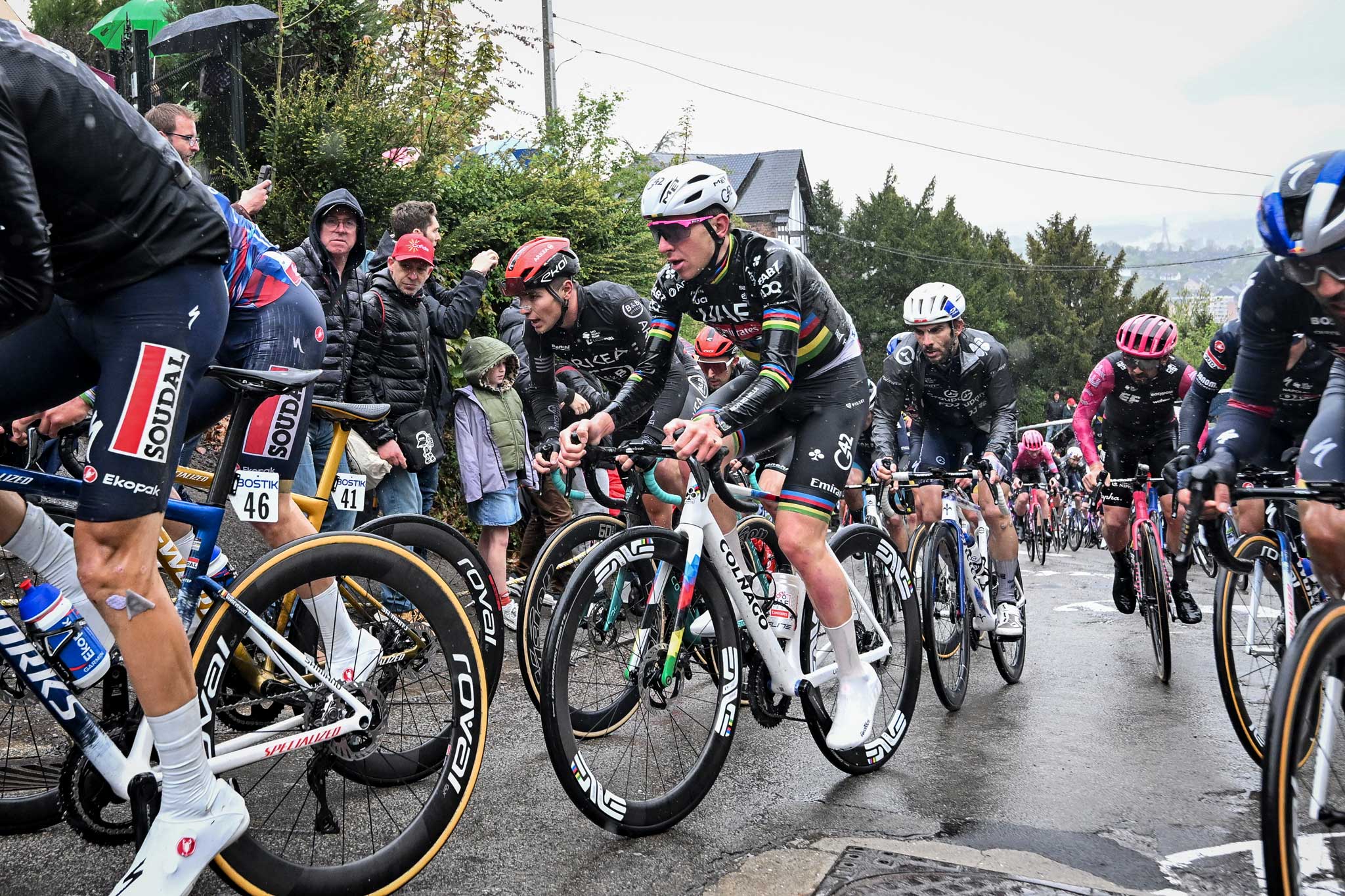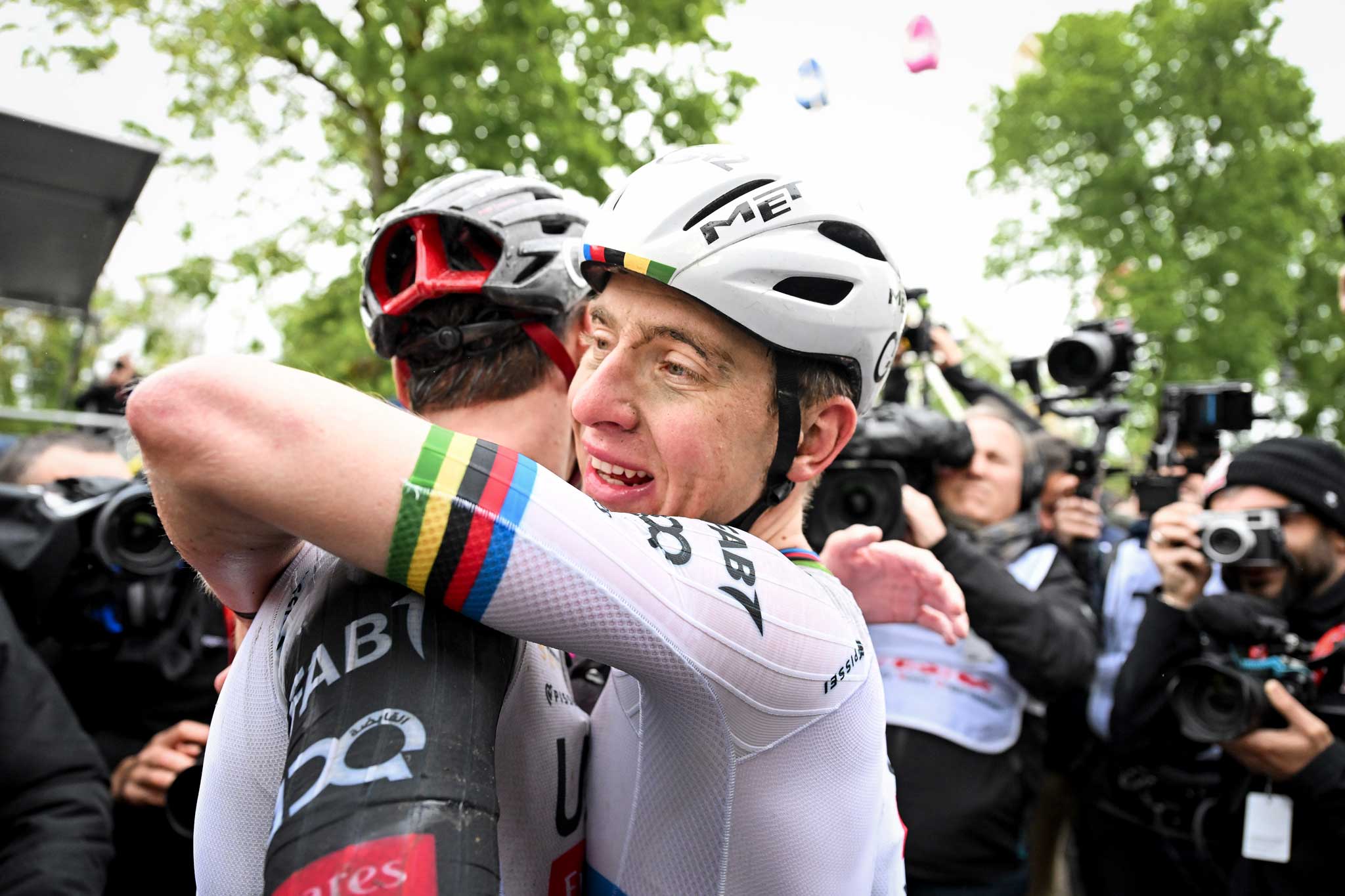And that, it seems, is that. Tadej Pogačar is back on top. The glimpse of humanity we saw from the bike rider so often described as ‘alien’ when he was chased down during Sunday’s Amstel Gold Race were dispelled with one, swashbuckling, seated acceleration on the Mur de Huy. The world champion’s winning attack in Wednesday’s Flèche Wallonne finale was so effortlessly smooth, he didn’t even need to glance back to see if anyone was on his wheel. Pogačar knew that no one would be able to follow those fluid, powerful pedal strokes that were carrying him to the 94th victory of his career. This is what he does.
The moment came with 550 metres remaining of the 1.2 kilometre climb – still early by Mur de Huy standards, but what else would we expect from Tadej Pogačar? In those 550 metres, the Slovenian rider opened up a gap of 10 seconds to his nearest challengers, the biggest winning margin in Flèche Wallonne since 2003. In modern cycling, people can’t usually attack that early on the Mur and hold on to the finish, but, as we all know by now, there are no rules in the Pogačar era of bike racing.

Behind him, they rode a more traditional race: Tom Pidcock played things patiently for Q36.5, watching and waiting before igniting his move in the final throes of the climb which earned him a respectable third place. Kévin Vauquelin of Arkéa-B&B Hotels was sandwiched between Pogačar and Pidcock, second at Flèche Wallonne for the second year in a row, just holding off the British rider who was coming at him quickly when the finish line approached. Both knew, however, that any chance of a win had gone out of the window as soon as they saw Pogačar’s rainbows disappearing up the steep gradients a few moments before.
And what of Remco Evenepoel, who looked to be the strongest rider in the race at Amstel Gold last weekend? The Soudal-Quick Step rider executed a solid showing – he was on the wheel of Pogačar on the descent before the Mur de Huy, alert at the potential of long-range surprise move from the UAE Team Emirates rider, but he could not answer Pogačar’s explosivity when it mattered. In the end, the 25-year-old would settle for ninth place, and would be left wondering if there was a way he could have played things differently. Should he have waited until the Mur, knowing what Pogačar can do on this sort of terrain? Could he have put his rival under pressure earlier in this race?

These are questions that…
